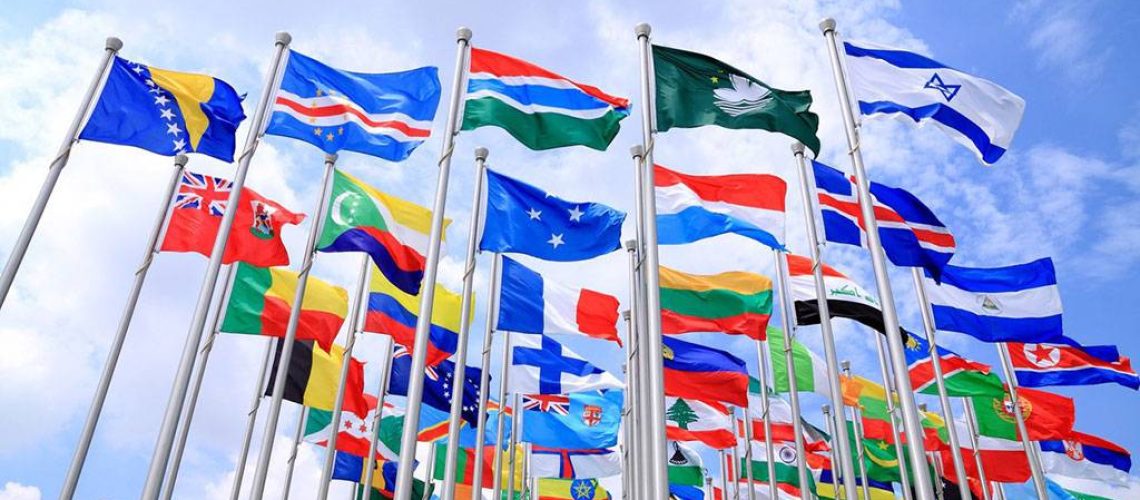Most countries have put in place regulatory frameworks to facilitate the prosecution of criminal organisations and mutual legal assistance treaties to facilitate intelligence sharing and operational cooperation. However, beyond the measures implemented at regional level to pool efforts, the response also involves the assistance and support that partner countries can provide.
Dialogue and cooperation for peace
In October, a dialogue between the Colombian authorities and the ELN (National Liberation Army) guerrillas was opened in Caracas. The president Gustavo Petro has also engaged in exchanges with neighbouring Venezuela and made clear gestures towards Chile and Mexico in particular. He has sought and obtained the support of the OAS for his project of “total peace” in Colombia.
The visit of US Secretary of State Antony Blinken to Bogotá for talks with the new president is intended to establish a framework for agreement on the broad lines of security. A new “modus operandi” will have to guarantee the Colombian president’s concept of “total peace” and the fight against drug trafficking for Washington. France, who also has borders in Latin America through its overseas territories, could enhance its diplomatic standing in multilateral bodies. “Defence issues also deserve more attention, with a particular focus on Brazil (a country bordering France through Guyana), Colombia and Argentina. In a context of Sino-American rivalries, levers of cooperation should be seized. At a time when Chinese financial gestures are winning over Latin American governments, the many French CAC 40 companies established in the region would benefit from better support in order to perpetuate the French presence,” emphasises Gaspard Estrada, political scientist and Executive Director of OPALC.[1]
[1] https://www-areion24-news.cdn.ampproject.org/c/s/www.areion24.news/2022/12/01/lamerique-latine-langle-mort-de-la-diplomatie-francaise/2/amp/
Regional tools
At a regional level, a multitude of forums, mechanisms and projects have emerged to provide a multisectoral and cross-cutting response to transnational organised crime. Since 2007, 19 countries in the region have come together in Améripol, a continental cooperation organisation inspired by the Europol model. Its mission is to strengthen police cooperation at the technical and scientific levels, to facilitate the sharing of information and the coordination of investigations and operations, and to improve judicial assistance. At the hemispheric level, the Department of Transnational Organized Crime (DOTC) created in 2016 by the Organization of American States (OAS) provides technical and legislative assistance to OAS member states, including compliance with the United Nations Convention against Transnational Organized Crime. The Model Law proposed in 2019 by the regional office of the Crime Stopper association to the Latin American and Caribbean Parliament, should help combat illicit trade and transnational organised crime. Approved in 2021, it will regulate the mechanisms for preventing, combating, investigating and prosecuting crime and illicit trade, smuggling and counterfeiting.
Developing international police and judicial cooperation
The seven countries involved in the EU-funded Programme of Assistance against Transnational Organised Crime in Latin America (EL PAcCTO) (Bolivia, Chile, Costa Rica, Ecuador, El Salvador, Mexico, Panama) have identified eight priority forms of crime to be combated: drug trafficking, human trafficking, cybercrime, property crime, environmental crime, smuggling, arms trafficking, money laundering. To date, almost 49 operations and investigations have been carried out under EL PAcCTO, 41 laws and policies have been put in place or are being developed or revised, and 34 agreements and strategies have been approved and/or are being implemented. Providing a coordinated response to this scourge is one of the objectives of the programme, which has already led to the formal location and arrest of 120 fugitives on three continents, including in 2022 ‘Major Carvalho’, one of the biggest international drug traffickers, wanted for drug trafficking, money laundering, document fraud and homicide in connection with organised crime.
Capacity building
Towards a 3rd Way?
“Latin America appears to be the ‘last frontier of the West’ for a Europe that must acquire the means of energy, technological and military independence, in order to exert influence in an international environment marked by the logic of a return to blocs. The place of these two groups in tomorrow’s world is at stake right now. More than ever, on an international checkerboard marked by power struggles, Europe and Latin America can form an alliance that will contribute to their independence,” says Pascal Drouhaud, a Latin America specialist.[1]
[1] https://www.revuepolitique.fr/lamerique-latine-la-nouvelle-frontiere-dun-occident-sous-tension/


